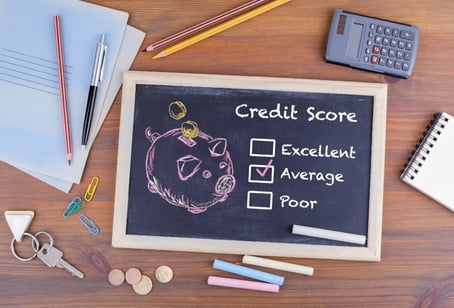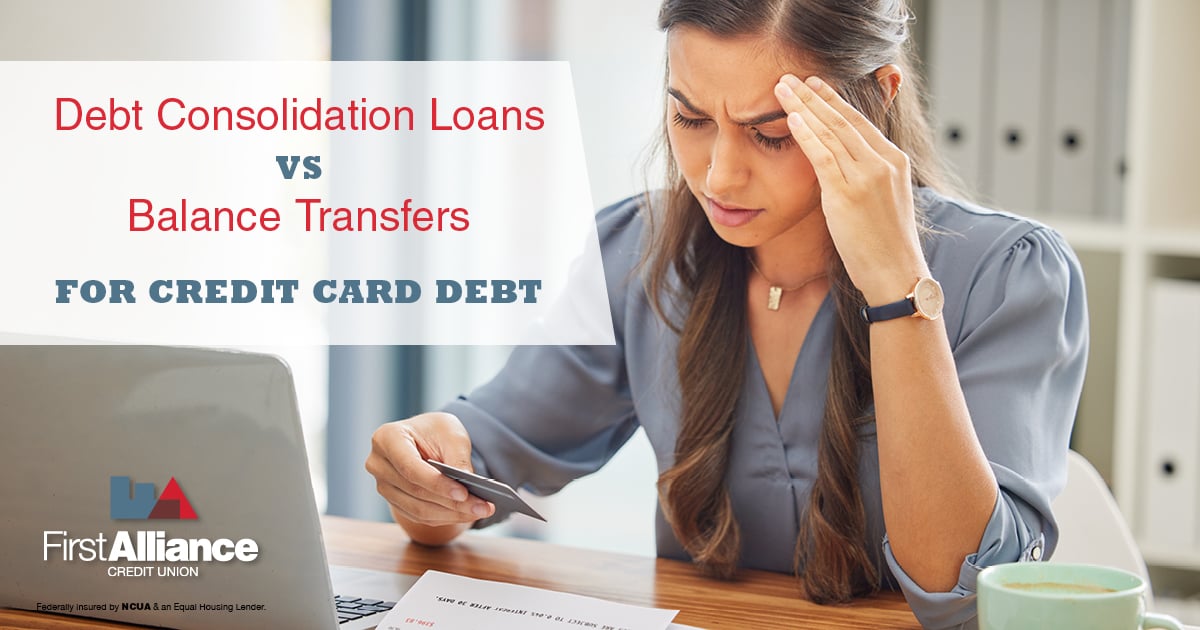Debt Consolidation Loans vs Balance Transfers for Credit Card Debt
Whether you’re drowning in credit card debt or just looking to streamline your payments, there are countless options to choose from when it comes to...

We all know that life happens. Divorce, health issues, emergencies, one or a combination of any life event can adversely impact your credit score. It's important to understand that credit scores don't change overnight, but taking these steps will definitely help you rebuild your credit.

Late payments, even if they are only a couple days late, and collections of any kind can have a seriously negative impact on your credit score. This includes not only your loan accounts like auto loans, credit cards and mortgages, but it also applies to your utility bills and cell phone bills. Paying all of your bills on time, every time is one of the best way to rebuild credit.
If you have missed payments, even one or two, its important to make sure you get your accounts current and make sure they stay current. Your credit score decreases with each missed payment. After missing payments, and you've gotten yourself back on track, those now on-time payments will be an important step in helping to rebuild your credit score. If you find yourself struggling every month to keep up with your bills, its important that you reach out to your creditors right away. In many cases, they can help you restructure your debts, maybe give you a month or two of breathing room between payments, and help you get set up on a budget.
The amount of credit used on your credit card lines can negatively impact your credit score. For example, if you have a $10,000 limit on your credit card and your balance is consistently at $9,000, you are very close to your credit limit. Having balances greater than 50% of your credit limits can negatively impact your credit score. It's important to either keep your balances low compared to your credit limits, or ideally, pay your balance off in full each month, which will help increase your credit score.
The best way to increase your credit score is to pay off your credit card balances. If you have multiple credit cards, commit to paying off the card with the highest interest rate first, while making minimum payments on the other cards. Once you have paid off the card with the highest interest rate, move on to the card with the next highest interest rate and so on, until you've successfully paid off all of your credit cards in full.
Another option that may help is debt consolidation. With debt consolidation, you take all of your credit card balances and combine them into one loan, with one interest rate and one monthly payment. This can definitely help you manage pay off debt.
I know its appealing to get a discount when you apply for a store credit card. Especially when they offer deep discounts like 25% off. The thing is with store cards, is that the limits are usually low and the interest rates are pretty high. Remember, at the end of the day, you really only need 1 or 2 credit cards. Having multiple credit cards with balances can negatively impact your credit.
Credit cards are not all bad. It's how we use credit cards that can get us into trouble. If you are keeping your balance to credit card limit below 50%, and making your payments on-time each month, then you will have a higher credit score. The same can be said for installment loans, like auto loans and mortgages, where you are making a fixed monthly payment on time each month.
Often people think that if they close credit cards they aren't using it will help boost their credit score. In fact, the opposite can happen. A part of your credit score is the longevity of accounts. How long you've had credit accounts and your payment history contribute to your credit score calculation. The longer your credit history, the more positive it is for your credit score.

When you're trying to establish a credit score it's important that you don't move too fast, accumulating too much credit too quickly. It's not necessary to open a bunch of credit cards to start building a credit score. In reality, its best to get one credit card and practice with it. Charge things like gas and groceries and start paying the balance off each month. This will help you to start building a credit history and a credit score.
If you've had credit trouble in the past and your ready to start rebuilding your credit, my best advice is to seek out a reputable financial institution and tell your story. Be upfront and honest and tell them exactly how and why you've had trouble and they will be able to help you come up with a solid plan on how to rebuild your credit.
Remember, Rome wasn't built in a day and credit isn't built or repaired in a day. It takes patience, time and persistence. Commit to your plan for rebuilding your credit score and stick with it. You will most definitely see results and your financial future will be brighter.

Whether you’re drowning in credit card debt or just looking to streamline your payments, there are countless options to choose from when it comes to...

The big question is: How can a personal loan help me? Lets give an example, meet Sam, 24, just landed a full-time job after years of working...

Credit cards are a big responsibility. If you are thinking about getting a credit card, make sure it's the right one for you. While credit cards can...